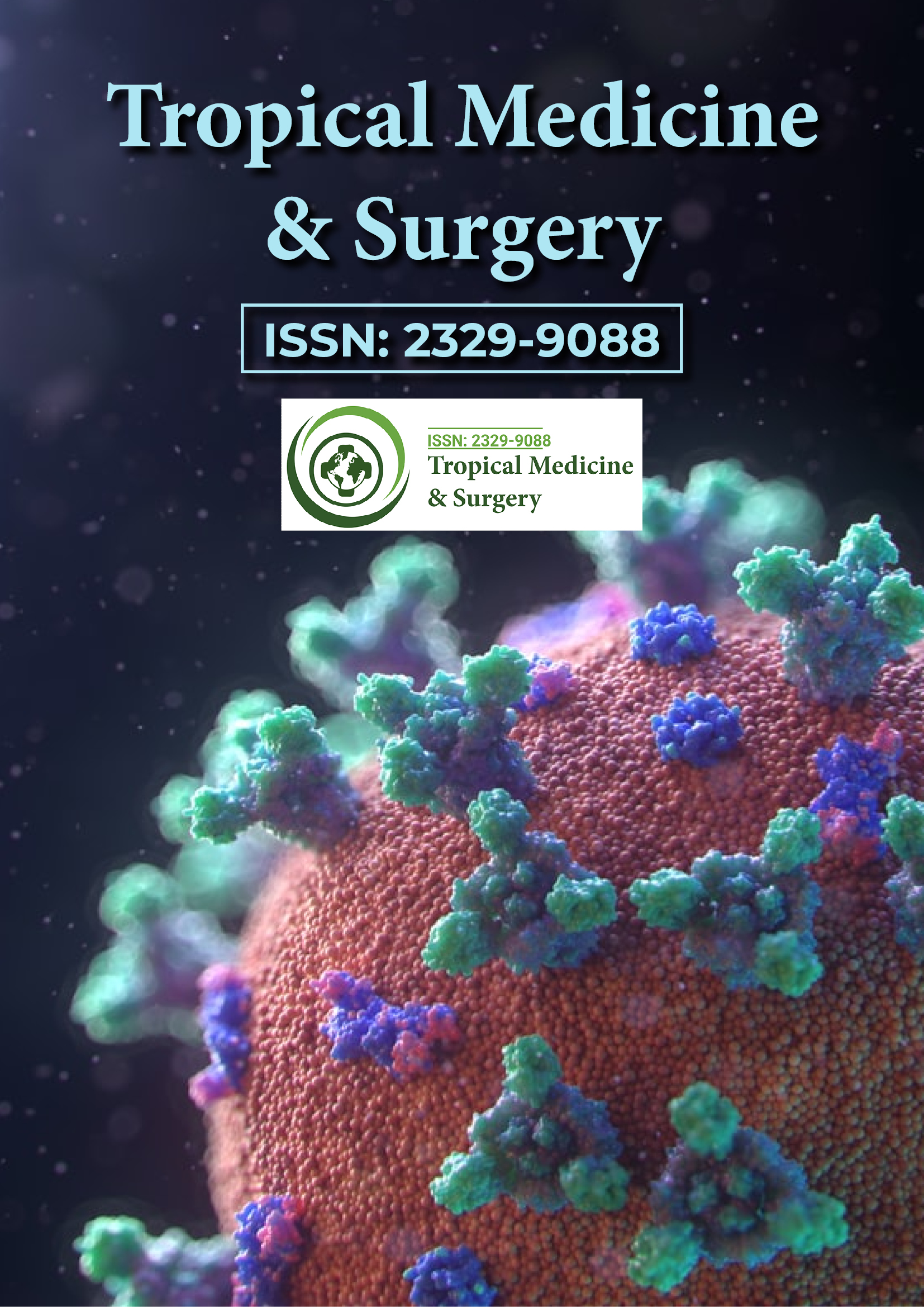Indexed In
- Open J Gate
- Academic Keys
- RefSeek
- Hamdard University
- EBSCO A-Z
- OCLC- WorldCat
- Publons
- Euro Pub
- Google Scholar
Useful Links
Share This Page
Journal Flyer

Open Access Journals
- Agri and Aquaculture
- Biochemistry
- Bioinformatics & Systems Biology
- Business & Management
- Chemistry
- Clinical Sciences
- Engineering
- Food & Nutrition
- General Science
- Genetics & Molecular Biology
- Immunology & Microbiology
- Medical Sciences
- Neuroscience & Psychology
- Nursing & Health Care
- Pharmaceutical Sciences
Perspective - (2024) Volume 12, Issue 2
Microscopic Protozoa to Complex Helminths and Challenges and Opportunities in Public Health
Demirci Mor*Received: 02-May-2024, Manuscript No. TPMS-24-25701; Editor assigned: 06-May-2024, Pre QC No. TPMS-24-25701 (PQ); Reviewed: 20-May-2024, QC No. TPMS-24-25701; Revised: 27-May-2024, Manuscript No. TPMS-24-25701 (R); Published: 03-Jun-2024, DOI: 10.35248/2329-9088.24.12.352
Description
Parasites occupy a unique niche, existing in a delicate balance between host and environment. Parasitology, the study of parasites and their interactions with hosts, represents a multifaceted field that encompasses a diverse array of organisms and ecosystems. From microscopic protozoa to complex helminths, parasites play a significant role in shaping the health and ecology of virtually every ecosystem on the planet. Parasites represent a remarkably diverse group of organisms, ranging from unicellular protozoa to multicellular helminths and arthropods. These organisms have evolved a wide range of strategies for exploiting their hosts, from direct tissue invasion to manipulation of host behavior. Some parasites, such as malaria parasites and schistosomes, cause devastating diseases in humans and animals, while others play essential roles in ecosystem dynamics, such as nutrient recycling and population regulation.
The life cycles of parasites are often complex and intricately linked to the life cycles of their hosts. Many parasites undergo multiple developmental stages, each adapted to different environments and host species. Transmission between hosts can occur through various routes, including direct contact, ingestion of contaminated food or water, and vector-borne transmission by arthropod vectors such as mosquitoes and ticks. Understanding the dynamics of parasite transmission is essential for predicting and controlling parasitic diseases. The interactions between hosts and parasites by a complex interplay of factors, including host immunity, parasite virulence, and environmental conditions. Hosts have evolved a variety of immune defenses to protect against parasitic infections, including physical barriers, cellular and humoral immune responses, and behavioral defenses. Parasites, in turn, have evolved sophisticated mechanisms for evading host immune surveillance, such as antigenic variation, immunomodulation, and manipulation of host behavior.
Parasitic diseases continue to pose significant challenges to human and animal health worldwide, particularly in resource limited settings. Factors such as poverty, inadequate sanitation, and lack of access to clean water contribute to the transmission of parasitic infections, perpetuating cycles of poverty and disease. Additionally, the emergence of drug-resistant parasites and insecticide-resistant vectors poses a growing threat to the effectiveness of current control measures. Effective control of parasitic diseases requires a comprehensive, multi-faceted approach that integrates preventive measures, surveillance, and treatment strategies. Preventive measures, such as improved sanitation, vector control, and health education, can help reduce the risk of parasitic infections in vulnerable populations. Surveillance efforts, including monitoring of parasite prevalence and drug resistance, are essential for detecting outbreaks and guiding control efforts. Treatment strategies, including chemotherapy and vaccination, play a important role in reducing the burden of parasitic diseases and improving health outcomes for affected individuals.
Recent advancements in molecular biology, genomics, and bioinformatics are transforming the field of parasitology, offering new tools and approaches for studying parasites and developing control strategies. High-throughput sequencing technologies allow researchers to sequence the genomes of parasites and their hosts, providing insights into parasite evolution, drug resistance, and host-parasite interactions. Additionally, advances in vaccine development, such as the development of recombinant subunit vaccines and novel vaccine delivery systems, for controlling parasitic diseases in the future. Parasitology is a dynamic and interdisciplinary field that plays a vital role in understanding and combating parasitic diseases. By exploring the pathways of parasitic life cycles, the mechanisms of hostparasite interactions, and the challenges and opportunities in the field, we can develop more effective strategies for parasite control and improve the health and well-being of human and animal populations worldwide. In the complex and everchanging landscape of parasitology, collaboration, innovation, and a deeper understanding of parasite biology are essential for navigating the pathways of parasitic infections and ultimately achieving control and elimination of parasitic diseases.
Citation: Mor D (2024) Microscopic Protozoa to Complex Helminths and Challenges and Opportunities in Public Health. Trop Med Surg. 12:352.
Copyright: © 2024 Mor D. This is an open access article distributed under the terms of the Creative Commons Attribution License, which permits unrestricted use, distribution, and reproduction in any medium, provided the original author and source are credited.
